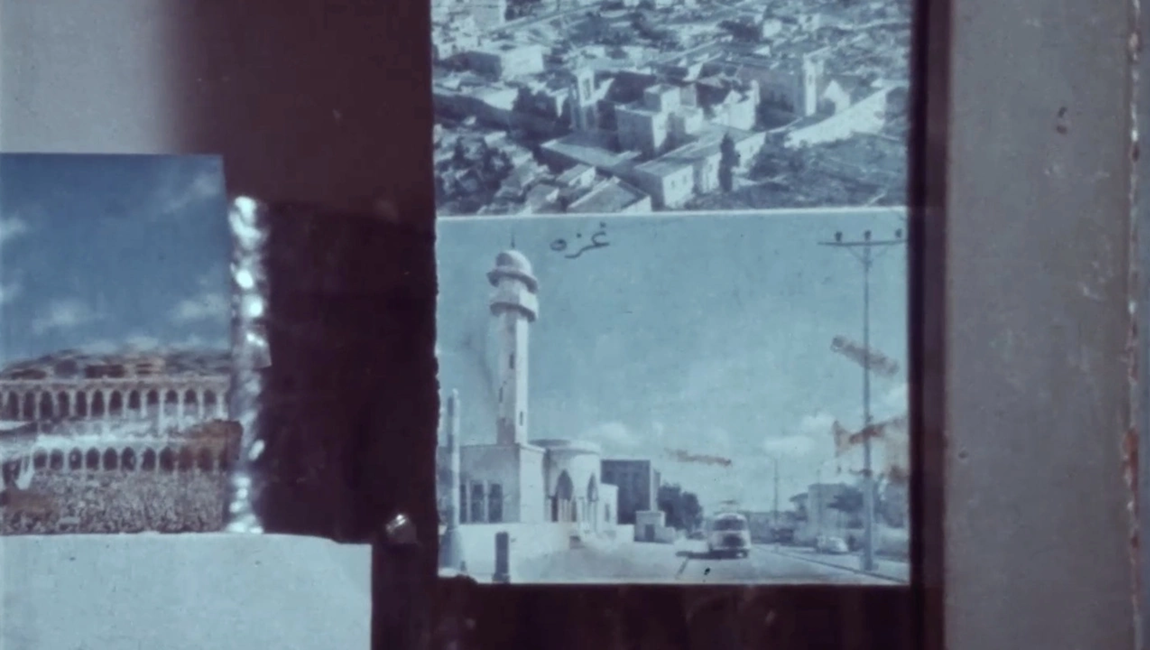The staff of In Review Online have come to the collective decision to abide by the international call from Strike Germany. We will be withholding coverage of the Berlin International Film Festival on the grounds that its institutional backing from the German government is marred by the latter’s censorship and marginalization of activist voices. Germany’s military and financial support of Israel, alongside the repression of those speaking up against Israel’s genocidal actions against the Palestinian people of Gaza and its assault and expropriation of those within the Occupied West Bank, should not be ignored or condoned. We wish to send our commitment of solidarity to all filmmakers and cultural workers who have joined this strike; business as usual is unacceptable. As over 100 Palestinians are killed each day in Gaza, we find the festival’s attempt to mitigate these criticisms with the gesture of The TinyHouse Project to be a condescension toward active and ongoing genocide. The festival’s poor attempt at good faith gives little actual space to the voices who push against empire, and offers only a tiny house, filled with hot air, off to the side, where no one else can see or hear you. While we will not be covering the Berlin Film Festival, that will not be the end of our participation in the strike. Instead, as a form of counter-programming, we will be reviewing selected works within the Palestinian Film Archive and publishing original writings related to these films. We declare solidarity with all participating in this strike, and solidarity with those participating in protests across the festival grounds.
It was my first year of undergrad when the identity and history of a Palestinian people punctured the identitarian bubble that had been cultivated and maintained for me, both by incuriosity and arrogance. Attending a private day school for most of my life, I stood for two national anthems before morning announcements: Canada’s, of course, and Israel’s. Our weekly prayers ended with derashot (translated to “discourses” — speeches given by the congregation leader), which reaffirmed our innate connection to the “Jewish homeland,” both historically and existentially. Outside of biblical studies, our Jewish History course, over three years, focused on just two events: the Holocaust and the establishment of the Israeli state. As should be expected, though, that history revolved around only wars. The UN partition plan was not a part of the syllabus, only the war of independence. The Six-Day war and the Yom Kippur war of ’73 were taught, too. However, as you can anticipate, the frame of our knowledge on the matter did not involve the concession of the Sinai, nor even the act of its occupation, let alone the Camp David accords. Our education surrounded war, but through a lens that only allowed for victory and victimization. The 1982 invasion of Lebanon was absent; the occupation of the Golan heights, as well. Most indicative of the ways we were conditioned to internalize this Zionist ideology is the fact that on each wall, in each classroom, in the whole of the school’s building, a map of Israel always hung. Israel, alone: negating the presence of Gaza, ignoring the Green Line, reifying the West Bank, the Gaza Strip, and the Golan Heights into the Israeli domicile. We were being taught, both passively and quite actively, a “Hill top Boys” Zionism. We were being taught to be settlers.
I was a Zionist that understood Palestine as a figment orchestrated to push anti-Semitic rhetoric, to contest our old adage “a land without a people for a people without a land.” My understanding of history was one of indoctrinated fallacies, my Jewishness weaponized into a political tool instrumentalized to negate myself, mine and another’s history, and the diversity of Jewishness as a political existence prior to and extending from 1948. The Anti-Zionism of the Warsaw Ghetto uprising didn’t exist, the Bundist movement didn’t exist, the Israeli Black Panthers didn’t exist, Hebrew supremacy didn’t exist, the Beta Israeli were a mere fun fact — Ashkenormativity was the name of the game I played a role in, advocating for Israel as an extension of myself, my history, and my generational trauma. As I would come to learn, this trauma would perpetuate through a self-inflicted degeneration of Jewishness, as Zionism would usurp over 4000 years of history and lay claim to it all, flattening its discursiveness into a continuity where 2000 years of cultural production would be excised and replaced with a yawning cavity. Only instances of anti-Semitism ever seemed to penetrate that chasm: pogroms, the invention of anti-Semitism as a concept, all culminating in a Holocaust that would engender our homeland. And therein we also engender an inevitable procession into fascism, an ideology that knows only how to use history as a malleable thought experiment to provide grounds for its supremacist fear-mongering and homogeneity. History cannot exist in the homogenous vessel and so it must be erased — the unspoken sentiment of my education.
Two films by Palestinian filmmaker Arab Loutfi, The Upper Gate (1991), her first feature work, and Over Their Dead Bodies: Tantura, the Forgotten Massacre (2008), her latest, underline a lineage of revisionism and erasure that the Zionist state has wielded as one of its most prominent weapons. The latter project more explicitly addresses this subject, as the Tantura massacre committed during the Nakba, May 1948, has been a widely scrutinized and censored event within Israeli society. The film briefly covers Theodore Katz, a Jewish-Israeli scholar whose thesis project was infamously shelved, sending Katz into social and academic exile. His project corroborated interviews from the Alexandroni Brigade soldiers, confirming their mass murder of hundreds from the Tantura village. But more affirmatively, Loutfi’s 2008 film is one intent on recontextualization, and in doing so directly contests the propaganda tactics of Israel through the decades. Its opening chapter, ironically questioning reason behind the Palestinian plight, communicates a delineated history of Tantura from 1914 onwards, establishing a narrative and continuity of colonialism within Palestine from prior to even the Balfour. British and Zionist collaboration is expounded on, their coordinated bombing campaigns of Arab-majority city squares and community spaces documented, all developing toward a militarized offensive by the collective of Zionist militias. Plan Dalet, the operation that would ignite an ongoing Nakba, is the bedrock of many stories defined by Israel’s barbarity, its racism, its condition as Imperial proxy. One of these stories is that of Tantura, a village on the upper west coast of Palestine, basking in the Mediterranean sun. Loutfi’s remarkable film makes sure to not only account for the historical tragedy, but also to texture this village through memory, a shared evocation both beautiful and anguished.
Over Their Dead Bodies arranges a mosaic of Tantura, a cognitive map drawn through the anecdotes of its former inhabitants, whose families had lived there for generations. Refugees now settled in Jordan, Syria, and Lebanon are interviewed, individuals all partaking in the effort to reconstitute Tantura’s living record. Loutfi cross-cuts between multiple subjects and groups as they retell the story of their exile, the story of their resistance, the story of their slain community. The result is a representation of historicity that places the often weaponized propagation of narrative back into the hands of those victimized by such practices. Israel’s Hasbara was conceptualized as a process of monolithizing cultural discourse based off a homogenous account of history that negated material fact. Loutfi’s film gathers accounts from the diaspora and organizes their chronicle, the documentation of which many have tried to excise, this orality possessing in it a threat to the Zionist hegemony. After all, Israel’s history is but a specter of colonial manipulation, proliferated through the Western media apparatus. This film can therefore be positioned as a necessary opposition to the machinations of empire. Loutfi’s montage is a beautiful materialization of its subjects’ internalized repository. That this work, alongside her complete filmography, remains lost to obscurity, regardless of their immediate accessibility, is indicative of the material effect a cultural effacement can have, even throughout communities that stand alongside in solidarity (Loutfi’s films can be found on her Youtube channel; the Solidarity Cinema archive also carries digital files of her oeuvre).
Central to this history of a massacre, however, is the portrait of a culture that said violence disrupted. Loutfi ensures to give space for the recollection of the quotidian, of the luxury and play prior to Zionist colonialism: the sensorium of Tantura, the lilies that grew on hill tops, their aroma; a pan-Arab culture that once coursed through seaside towns, ports; cultural exchange and cultural celebration — this, too, is lost to the massacres. These are the histories of those dead bodies the Zionist entity would walk over and bury indiscriminately in unmarked mass graves, atop which parking lots now encase. The composure of this work is inscribed via formal techniques that project the impressions of the Palestinian diaspora onto the landscapes they’ve been removed from. In many ways, what’s present here is a more direct form of Straub/Huillet’s conceptions and articulations of landscape cinematography, though instead of images flattening history into a timeless wormhole, they are utilized to flatten distances. Loutfi’s employment of such techniques has existed through her entire body of work, The Upper Gate also splaying the subjectivity of those dispossessed back across the lands they once cultivated.
The Upper Gate is a simpler project than Loutfi’s chronicle of Tantura, focusing on the city of Sidon in southern Lebanon, her birth place and home to thousands of Palestinian refugees. Similarly structured through chapter-like segmentation, the work discusses more generally a positionality of the Palestinian community through their involvement in local organization and resistance support. Writ large, the film unfurls as a documentation of political collectivization within the city, relating reportage: the unionization of fishermen, the building of social infrastructure as the refugee population settled, and in one sequence we are even provided a manifesto. A Christian man recounts the proposal of reformation amongst the religious, rejecting Western influences of Roman Catholicism and organizing around the political circumstances of Pan-Arabism, under the thumb of imperial/colonial rule. He articulates a vision of futurity that emancipates the colonial subject through collective struggle, a sentiment shared through so many distinct sects amongst the population in the city.
Loutfi’s ideological vigor realizes itself through this film as its thesis comes together via the anecdotes of herself, her family, and the residents of her locality. She etches a memory of her youth, the contexts through which she began her convention with the histories that bore a disposition she interrogates. With The Upper Gate we regard the labor of Palestinian resistance as a living part of Israeli occupation. It is posited that the fragmentation of the Arab world post-WWI organized a culture of resistance alongside it. The 1917 Balfour declaration, the Sykes-Picot Agreement, the Nakba, the 1982 invasion — these are select pieces of history that perform as junctures through which this legacy of imperial violence punctures the capacity for any continuity of lived existence. These commanding documents that archive the collective conditions of a populous under perpetual militarized aggression are also odes to the struggle that these men, women, children, and all else endeavor through. They are shrines to a cultural memory existentially threatened by supremacist thugs, supported and orchestrated by the very governments whose tax dollars are extracted from our pockets. These are works that invoke the globalist matrix through which imperialism enacts itself atop dehumanized bodies, providing platform and face to countless struggles against loss and expropriation. Loutfi’s documentaries expose the fallacy of Zionist rhetoric, uplifting the tangibility of experience that refutes and admonishes that chimera so confident that the land did not have a people. Indeed, it did, and indeed it still does. The Palestinian people fight on, as they have for a century, and Loutfi’s projects bear witness to the beauty and tragedy that are mere morsels of a collective memory she begins to manifest, documents that are deeply resonant fractions of an incommensurable whole.







